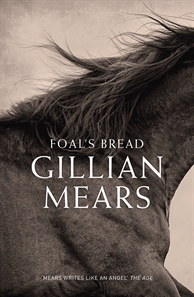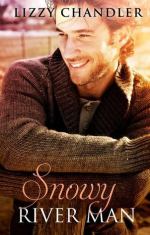 Trigger warning for survivors of childhood sexual assault.
Trigger warning for survivors of childhood sexual assault.
There aren’t too many books I can honestly say have changed my life, but Gillian Mears’ Foal’s Bread is one of them.
I first came across this title in 2012 when participants of the Australian Women Writers Challenge posted their reviews. Eleven reviews appeared that year, the vast majority of which were laudatory. This was a special book, I realised. It could sneak inside your soul, break your heart, move even the most prosaic reviewer to poetry.
Opening the beautiful dust jacket with its glimpse of a galloping horse, I began to read, only soon to slam the book shut again. The initial pages are so horrifically distressing, and yet so beautifully told, I knew I’d need to be stronger to withstand the emotional onslaught.
A few weeks ago I tried again. This time, I persisted. I read about how in the early twentieth-century a young Aboriginal girl, Noah, finds herself in an intolerable situation, battles through as best she can, has children before she’s fully grown up, and marries a man who, like her, is a champion horse rider. I read of Noah’s strength as mother, farmer and farrier, as her husband Roly succumbs to a mysterious illness, the birth of her daughter Lainey who, like Noah herself, has the talent to become a champion rider. I read how the events of those first few pages haunt Noah through the years until she at last comes to terms with them.
For me the beauty of this story isn’t in the plot. It isn’t even in the language – though that is exquisite. It’s in the effect it has had on me personally. One of the facets of certain kinds of childhood sexual assault that many people don’t understand is how survivors can respond. Often, the abuser has the child’s trust; sometimes, the abuser is just about the only person ever to have shown the child kindness; sometimes the child’s own nascent sexual feelings are stimulated by the sexual violation of their boundaries, so that they don’t even recognise the abuse as abuse. They respond to it as if it were love.
Mears has depicted the complexity of this childhood response with remarkable sensitivity. Her portrayal of Noah as a survivor is done with such understanding and compassion that I find myself not only in awe at her skill, but also immensely grateful. I finished this book with a remarkable sense of freedom. For years, I have been filled with rage at my abuser. Mears reminded me of the love I’d once felt, and the reasons for that love. For some strange reason, accepting this reality, opened up a space where, it seems, forgiveness may be possible. We are all capable of being abusers of one kind or another, Mears suggests; “hurt people hurt people”. It’s a remarkable gift for a writer to convey that reality with such a deep sense of compassion.
As its publisher’s page attests, Foal’s Bread has been nominated for and won an outstanding number of awards:
Short-listed, Adelaide Festival Award for Literature, Fiction, 2014
Winner, Prime Minister’s Literary Award for Fiction, 2012
Winner, ALS Gold Medal, 2012
Winner, 60th Annual Book Design Awards, Best Designed Literary Fiction, 2012
Winner, The Age Book of the Year Award Fiction, 2012
Winner, Victorian Premier’s Literary Award for Fiction, 2012
Winner, Colin Roderick Award, 2012
Short-listed, NSW Premier’s Literary Awards, Christina Stead Prize for Fiction, 2013
Short-listed, Indie Awards, Fiction prize, 2012
Short-listed, Barbara Jefferis Award, 2012
Short-listed, Miles Franklin Literary Award, 2012
Short-listed, Nita B. Kibble Award, 2012
Short-listed, Australian Book Industry Awards Book of the Year, 2012
Short-listed, West Australian Premier’s Book Award, 2012
Having finally read it, I now know why.
~
This review forms part of my contribution to the 2014 Australian Women Writers Challenge and Aussie Author Challenge.
Author: Gillian Mears
Title: Foal’s Bread
ISBN: 9781742376295
Australian Pub.: November 2011
Publisher: Allen and Unwin




Jessica White
/ September 14, 2014My goodness, what a moving review, Elizabeth. It’s such a complex piece of work that many people find something in it for themselves, I think. And the characters, too, are so mutlifaceted, with both strengths and flaws, that you can’t help but feel conflicting emotions about them. I’m so glad you had the courage to keep reading it.
LikeLike
Elizabeth Lhuede
/ September 14, 2014Thanks, Jessica. I’m glad I went back to it (mightn’t have except I was determined to contribute at least one review/response to the authors with a disability month – so thanks for that!).
LikeLike
Jenny Ackland
/ September 14, 2014I loved this book and reading your review makes me want to re-read it. I think it was my favourite Australian book of that year.
LikeLike
Elizabeth Lhuede
/ September 14, 2014Thanks for taking time to comment, Jenny. I’m sure it warrants rereading – for the language alone. I’ll be interested to read her other books (if I have the emotional stamina).
LikeLike
Jane Bryony Rawson
/ September 14, 2014Elizabeth, if you do want to read more I recommend her essay in HEAT magazine, ‘Alive in Ant & Bee’, about her illness and disability, which is incredible.
LikeLike
Elizabeth Lhuede
/ September 14, 2014Thanks, Jane. I’m sure I will read more. I hear her novel Mint Lawn is amazing, too.
LikeLike
Christina Houen
/ September 14, 2014Elizabeth, thank you for this moving review. I agree with you, it is an extraordinary, powerful book, and I can understand how it has changed your life. I also agree that the depiction of Noah’s childhood experience is very sensitive and fiercely honest, showing the love as well as the hurt. It is also, dare I say, erotic in its intensity. It is as though the author (or the reader) is inside Noah’s skin.
Your review has also made me want to re-read the book. and like Jenny Ackland, it was my favourite Australian book of that year, and I was disappointed (and disillusioned) that it did not win the Miles Franklin award, and what I regard as a much inferior book did. But that’s awards for you.
LikeLike
Elizabeth Lhuede
/ September 15, 2014Thanks, Christina. I think it would have been an excellent Miles Franklin winner (I can’t make a judgement call as I haven’t read the other book). It captured the life and idiom of a time gone by, yet remains contemporary in its message of enduring and overcoming. I think Jessica is right that it touches different readers differently. I’m pretty sure, if I read it again, I’d respond more to other elements of its complex narrative – the relationship of mother and daughter, especially. So much to think about (and feel).
LikeLike
whisperinggums
/ September 14, 2014Oh Elizabeth you’ve expressed from personal experience what I felt made sense intuitively but found hard to express without sounding either insensitive or naive. She made sense. It’s very hard to express and recognise complex truths.
LikeLike
Elizabeth Lhuede
/ September 15, 2014Thanks, Sue. I can understand reviewers being wary of touching this issue for the very reasons you mention. I’m sure other survivors could have very different (including negative) responses to the narrative, too. As you say – it’s so very hard (for writer and reader) to recognise and express complex truths.
LikeLike
robyncadwallader
/ September 15, 2014Thanks for this review, Elizabeth. I was very touched by your balance of personal response and critical commentary — not an easy thing to do. A little like you, I read the first chapter of this book in a preview and was overwhelmed by the strong writing and the tough content. It has been on my list to read ever since, and your review has given me another nudge to get a copy.
LikeLike
Elizabeth Lhuede
/ September 15, 2014Thanks, Robyn. I do hope you seek it out. It certainly rewards persistence. I’d be interested in knowing your response once you’ve read it.
LikeLike